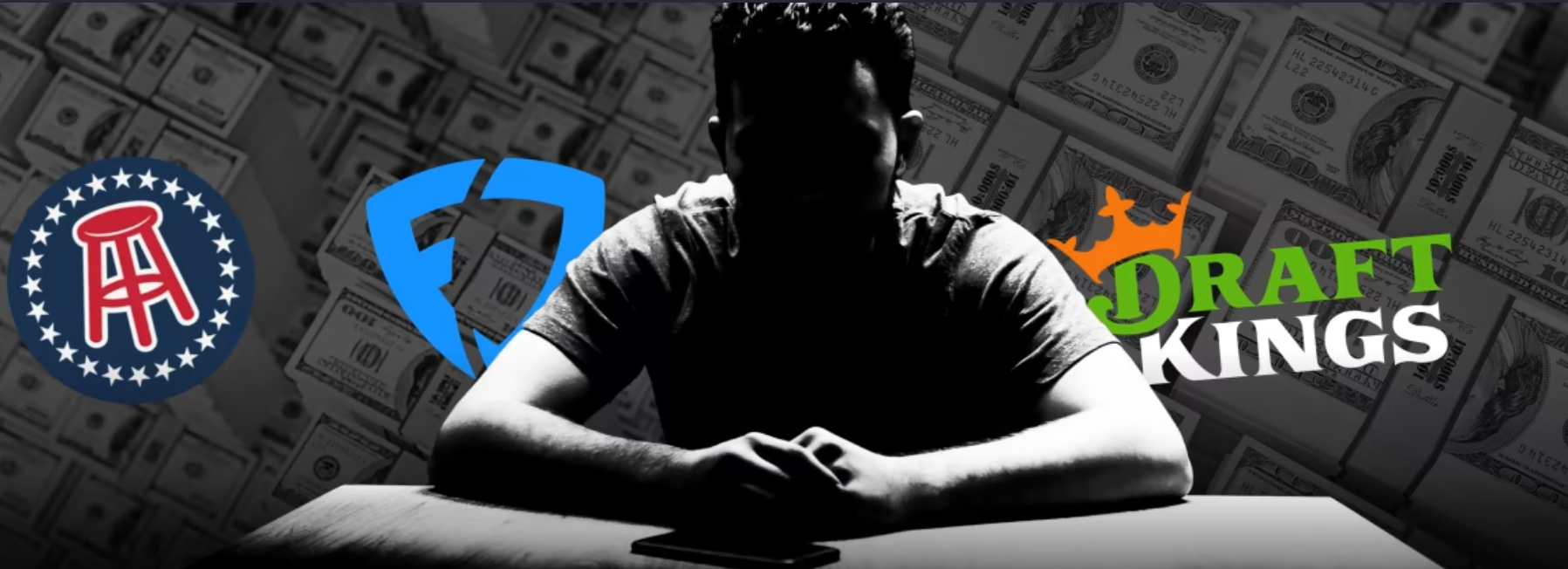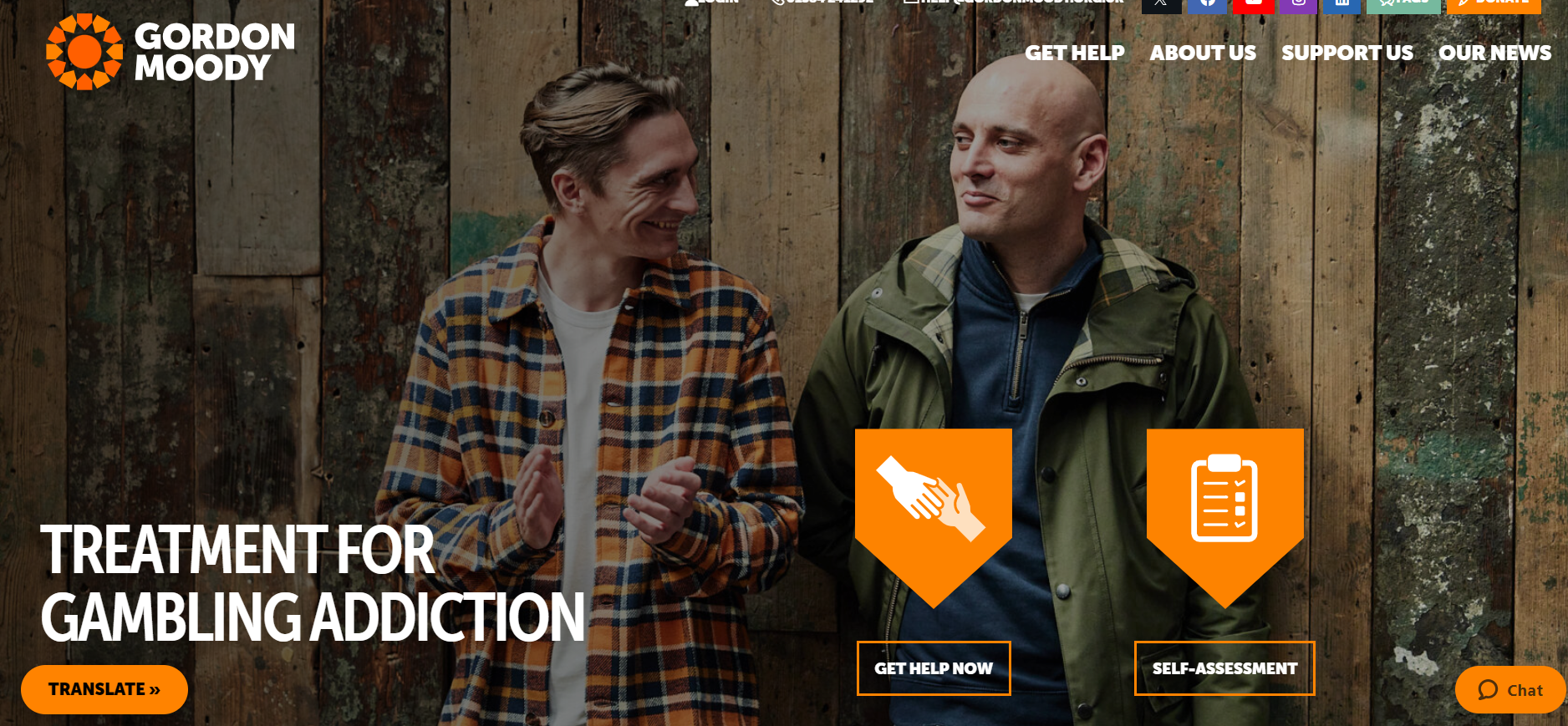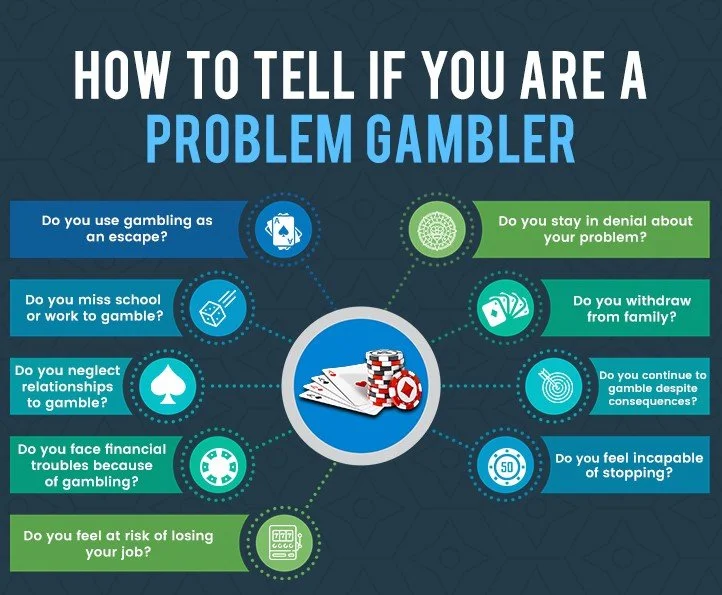Navigating the Odds: Men's Health and Gambling Addiction
The Dark side of Sports Betting
‘I Started to use it as a kind of mask’ .. ..
Gambling addiction is a serious issue that affects mankind globally, transcending age and socioeconomic backgrounds.
Globally, the World Health Organization estimates that around 1.6 billion people engage in some form of gambling, making it a widespread issue with significant public health implications.
In the United Kingdom and US , the prevalence of gambling addiction has become a growing concern, with a significant impact on men.
Almost 5% of the male population in the UK are problem gamblers, and men are seven-and-a-half times more likely than women to become problem gamblers.
Over three quarters (78%) of active online betting accounts are held by men and the online betting sector derives an estimated 94% of its revenue from men. Among the highest spending accounts (where £5,000 or more was spent over the year), over 95% were held by men, typically in their 40s.
70% of callers to the National Gambling Helpline are male! Pretty startling right!
Why is gambling addiction such and issue for men then?
Well… There seem to be quite a few reasons.
Firstly, they are drawn in by the excitement and the thrill of it! Men are socialised to seek out and partake in inherently risky or thrill-seeking behaviour.
Partly due to their naturally competitive nature amongst peers, as gambling, especially ‘high stakes gambling’, can provide them with the opportunity to compete with others in a high intensity environment.
Men who engage in ‘strategic’ forms of gambling – such as casino table games – have been found to display higher levels of conformity to masculine norms.
It also stems from a need to partake in risk-seeking or dangerous behaviour as a display of masculinity. This is the way men are socialised to behave amongst their peers. To display the ability to ‘emerge victorious’ - even when the odds are stacked against them.
Lastly (what we believe to be the most problematic form) is that gambling is used by many men to mask discomfort or stress with a dopamine intense activity to distract them!
A study by Alessia Passani in 2020 found that men with gambling issues displayed three traits in particular:
Hyper-competitiveness
Complex creativity
Self doubt
Studies have shown that people with gambling problems are more likely to use avoidant coping than task-focused coping. Avoidant coping involves trying to escape the stressful situation, such as by gambling, rather than dealing with it.
These individuals are very competitive and can formulate ingenious ways to achieve their goals. However they are inherently plagued with elements of self-doubt. Gambling acts as a ‘Kryptonite’ of sorts to individuals with these characteristics. Providing them with a platform to materialise wild fantasies of winning. ‘Quick-fixes’ which they can escape in to.
What makes matters worse, and makes the lure of gambling so toxic is….
Sometimes they win!
For these reasons gambling addiction is a tough cycle to break for many young men. But to better understand the topic, we had to get first hand insight from individuals who had suffered from the behavioural addiction.
We reached out to Gordon Moody's gambling addiction organisation, who have been helping victims of gambling addiction get their live back on track since 1971.
Gordon Moodys website can be found at https://gordonmoody.org.uk/
Their outreach team have been an enormous help, reaching out to their extensive network and putting us in touch with their alumni (although a couple might disagree with the phrase ‘alumni’) and allowing us to converse with some incredible people that have been through their programme and are fighting a winning battle against this addiction.
They discussed their formative years and how gambling appeared in their lives, also noting the steps they have taken to ensure they don’t fall back into bad habits. We will go into these in detail, highlighting the common trends we noted during the course of our interviews and the most effective solutions they have implemented to keep the dice at bay!
The Main Issues
Early Onset and Spiralling!
From our conversations it became very clear that many men begin their journey into gambling at a young age, often unaware of the potential consequences.
This can appear due to a number of factors. Some start gambling with friends on football games, innocently. Others may have been introduced to gambling by friends or family and it soon turns into a hobby of sorts.
The inflection point is normally when the individual decides to move from interacting with gambling socially with friends, to alone. They can become isolated and refuse to inform friends of their losses. This is when matters can seemingly take a turn for the worse.
The thrill of risk-taking can be enticing, and the accessibility of online platforms makes it easier for individuals to engage in gambling activities discreetly. This early exposure increases the risk of developing a lifelong addiction, affecting various aspects of one's life, including mental health, relationships, and financial stability.
It is important to note that throughout our conversations, the people affected by this viewed it as a solution at the time, rather than a problem. This could be an escape from an uncomfortable life experience, such as moving away from home (some picked it up at university as a form of escape) or mourning the loss of a loved one.
Image sourced from addictions.com
In any case, young men are at danger of falling into this trap. their social circles sometimes prohibit vulnerability, leaving them prone to seemingly quick-fix solutions and leaving them reliant on self-destructive habits!
Sports and Gambling
The intertwining of sports and gambling has become a prevalent issue, especially for men. From fantasy leagues to sports betting, the connection between the two is strong.
Activities such as fantasy league, or even just watching sports games, can easily feed into a lifestyle that regularly incorporates gambling. The evidence is as clear as day!
Sports are a prevalent and strong method of connection for many men, and refusing to re-enter this realm would leave many of them isolated, further worsening the issue. Many will feel pressured to partake in group stakes as their favourite teams play. The fear of being left out a more painful option than contributing to their worsening personal issues.
This relationship between sports and gambling can escalate into a dangerous cycle, as the excitement of the game becomes inseparable from the thrill of gambling, leading to increased vulnerability to addiction.
One alumni informed us of the multitude of sports that he began watching specifically for betting. Once he had cut back on gambling activity , he no longer felt the same excitement from watching. The buzz was almost entirely from the gambling associated with the sport!
From a gender-neutral perspective this might not prove to be a significant issue. However, when we look at it from a male-centric perspective we can see where the complex intertwining arises. With a behavioural addiction intertwined so strongly with something that men deem to be a centrepiece of their bonding activities, the approach requires an understanding of their unique situation.
In an article by Tori Horn a therapist and PhD Student in Clinical Psychology from the University of Memphis, she referenced the change in clientele for her therapist services. Since 2020, her average client has started to look different. She now provides therapy to younger men, mostly in their 20s, who are seeking treatment for problems with sports betting.
The prevalence of new sports betting applications marketed to this demographic has lead to explosive uptake in betting and gambling by young men, and it doesn’t look like safeguarding measures are being taken to protect individuals against the associated risks.
Advertising in Sports
The pervasive presence of gambling advertising in sports further exacerbates the issue. Constant exposure to betting promotions during sports events can normalize gambling behaviour and lure vulnerable individuals into the vicious cycle of addiction.
In October, the Victoria Derbyshire programme found that 95% of ad breaks during live football matches featured at least one gambling advert.
It is estimated that British men will watch an average of about 20,000 hours of televised sport throughout their lifetime, with football being by far the most watched.
By contrast, women will watch about half that amount
This was a topic regularly touched on by the alumni of Gordon Moody’s. Particularly when discussing their approach to relapse.
Normally the first step when attempting to free oneself from the habit is to rid their lives of triggers that may remind them of gambling or betting. This may be packs of cards, unfollowing betting pages on social media or restricting contact with friends that partake in this behaviour regularly (More serious steps may include self-banning themselves from betting apps and bookies)
However (as you may have noticed)…
Gambling Ads are (Literally) EVERYWHERE!
Gambling ads are plastered all over sports events, social media and general ad space. And with the modern invention of targeted advertisements, even if one tries to avoid them, they can seek out and find you.
A recent study by Rafaello Rossi found that gambling ads are more appealing to young people than to adults and ‘portray gambling as a harmless and fun activity with few warnings of potential health dangers’
Addressing this issue requires a collective effort from sports organizations, advertisers, and policymakers to establish responsible advertising guidelines.
Ineffective Safeguarding on Gambling Applications
Safeguarding measures on betting platforms often fall short when it comes to adequately protecting young users, exposing them to the significant risks associated with gambling addiction. While they may implement age verification processes during account registration, they are not foolproof, and determined individuals can easily work around them.
Once young users gain access to these platforms, the absence of robust monitoring mechanisms allows them to engage in gambling without sufficient oversight.
The pervasive nature of in-app advertisements and promotions further normalizes gambling behaviour, creating an environment where young users are desensitized to the risks involved.
The same applies to vulnerable customers of all ages. With many cases of gambling addiction and catastrophic financial loss referred to in the Governments new case for betting reforms. Examples include one player who was allowed to lose £70,000 over a 10-hour period, while one customer was allowed to place a £100,000 bet immediately, even though he had a £70,000 credit limit.
The rise of online gambling has clearly created new challenges in terms of safeguarding vulnerable customers. Gambling applications often lack effective mechanisms to identify and protect individuals at risk. The ease of access and lack of physical barriers make it challenging for men to control their gambling habits, contributing to the severity of the addiction.
In order to formulate strategies to effectively prevent relapse, it is just as important to breach the topic of healthy living to sustain abstinence from bad habits, such as gambling. We have incorporated these into our habit prevention system. However, learning and making informed adjustments based on real life encounters with relapse will always be invaluable.
Across our interviews, here are some of the practices employed by those that are effectively managing their behavioural issues surrounding gambling.
What helps!
Building Strong Support Systems
Maintaining open and honest communication with friends and family is crucial for those struggling with gambling addiction. Establishing a strong support system provides a foundation for recovery.
As one alumni put it:
‘With a lot of other addictions you can kind of tell you know. They might be missing at work or found in the bushes or something. But with gambling I think its like, silent. With it being on your smartphone, you would never really know’
Men, in particular, should feel encouraged to communicate without fear of judgment or societal expectations. This first step of reaching out to even one person is critical. it can provide the individual with a certain level of accountability. Now they have entered a space where they are no longer isolated, and therefore better able to voice concerns stemming from any underlying life dilemmas, as well as those resulting from gambling itself.
Social circles may requires pruning, as old friends can serve as a manifestation of poor choices and bad tendencies. Walking relapse ‘triggers’ facilitating the slip back into old ways. Another point touched on frequently being how the process of adapting ones social circle is difficult, but can be implemented with grace.
Underestimating the ability for social bonding to help overcome addiction is a big mistake!
Joining others who have walked the same path, and bonding over the willingness to break free of bad habits can be liberating.
Gordon Moody’s have provided their alumni with an excellent network of peers undergoing the same transformational journey. This has helped almost all the men we engaged with in one way or another
Brotherly provide their users with the same space to voice concerns, albeit anonymously. When choosing vices to abstain from, we noticed the tendency for men not to talk, for whatever reason. Providing men with a small network of anonymous users with similar goals provides them with a strong base of aligned goals, values and accountability.
Pursuing Fulfilling Hobbies
The powerful impact of hobbies and life callings in breaking addictive cycles cannot be overstated. Engaging in meaningful activities not only serves as a distraction from destructive habits but also provides individuals with a sense of purpose and fulfillment.
Organisations such as UK Rehab, that have expertise dealing with addictions in its many forms, state that hobbies can act not only as a stress reliever but as an effective way to inject meaning into daily life.
Hobbies, whether it's pursuing a creative passion, engaging in sports, or immersing oneself in a skill-building endeavor, offer a constructive outlet for emotions and energy. These activities require focus, dedication, and time, redirecting attention away from addictive behaviours.
One alumni discussed how he had recently taken up coaching his sons Sunday league football team. It requires planning of trips, training drills, encouraging his team and pushing them to achieve their goals. Since then, he has continued to up his game. Partaking in coaching courses and working diligently towards obtaining his FAW/UEFA B Licence, which would allow him to coach professionally.
Get stuck in!
The nature of these activities require thought and problem-solving, thereby making the satisfaction derived from the activity that much sweeter!
Furthermore, life callings, which involve aligning one's actions with deeply-held values and aspirations, can be transformative. Discovering a sense of purpose beyond the confines of addiction instils commitment to personal growth and positive change.
Hobbies and life callings not only break the monotony of addictive cycles but also foster resilience and self-discovery, creating a foundation for long-term recovery and a more fulfilling, purpose-driven life.
Finding alternative sources of fulfilment is essential in breaking the cycle of addiction. Engaging in hobbies and pursuits that require effort, planning, and skill development can provide long-term satisfaction and purpose. This shift from instant gratification to long-term fulfilment is integral to overcoming the challenges of gambling addiction.
We have aimed to factor this key element into our platform in the form of our ‘Build’ feature, providing users with the ability to locate and join sports clubs, gyms, mindfulness classes and engage in other productive activities to plug the holes addictive habits can create.
Personal Responsibility and Accountability
Taking personal responsibility is a critical step in the recovery process. Acknowledging the impact of gambling on one's life and committing to change requires self-reflection and accountability. Men must recognize that seeking help is a sign of strength, not weakness, and actively participate in their journey towards recovery.
Every alumni we engaged with seemed to have reached what we call an inflection point. This was a point at which they realised their daily decisions were affecting the long-run trajectory of their lives. They had to make a change and they had to make it sooner rather than later. This is where the onus of recovery becomes their own, and it allows them to prioritise themselves alongside those they love and their aspirations.
As famously put by the world renown physicist Albert Einstein:
“Insanity Is Doing the Same Thing Over and Over Again and Expecting Different Results”
Many openly voiced the fact that lasting change cannot be implemented by those around you, but only by yourself. These were bright young men who could clearly circumvent the safeguards implemented to stop them relapsing if they wanted to. Having the drive and determination to fight their cravings is perhaps the most significant determinant of long-term success.
In conclusion, addressing the issues of gambling addiction among men requires a comprehensive approach that encompasses societal awareness, responsible advertising practices, and individual empowerment.
By fostering a supportive environment, promoting fulfilling alternatives, and encouraging personal responsibility, we can strive towards a healthier future where men can navigate the odds of life without succumbing to the pitfalls of gambling addiction.
We would like to firstly give an enormous shout out to Gordon Moody’s for helping us gather information for this case study and providing an incredible amount of expertise and guidance on the complex topic of addiction. If you or anyone you know has suffered form gambling addiction head over to https://gordonmoody.org.uk/ to check the fantastic services they can provide!




